Humira, the world’s bestselling drug, has turned AbbVie into a global powerhouse. The company has proved to be great at guarding its patents—and not so great at developing new therapies. How a blockbuster medication became a case study in what’s killing drug innovation.

AbbVie’s flagship therapy, a medicine used to treat a slew of conditions from arthritis to psoriasis to Crohn’s disease and ulcerative colitis, is the bestselling drug in the world, bringing in nearly $20 billion in global sales last year alone. As one U.S. senator noted at a hearing on drug prices in February, that titanic sales figure would be enough to put Humira (were it a company unto itself) on the Fortune 500 list.
And on first glance, it’s hard to conceive of a more perfect archetype for drug success. Abbott Laboratories—which spun off its branded pharmaceuticals unit as a separate company, AbbVie, in 2013—received its first FDA approval to market the medicine on Dec. 31, 2002. A little more than two years later, the injectable drug surpassed the billion-dollar mark in global sales, traditionally the threshold for “blockbuster” status in the pharmaceutical industry—a stunning feat in such a brief span. By 2006, sales had reached $2 billion, a number that would more than double in just two years’ time. By 2013, Humira was the world’s bestselling drug, with $10.7 billion in sales across more than 60 markets, and as improbable as it seems, even that colossal sales figure has nearly doubled again in the half-decade since.
Denne historien er fra August 2019-utgaven av Fortune.
Start din 7-dagers gratis prøveperiode på Magzter GOLD for å få tilgang til tusenvis av utvalgte premiumhistorier og 9000+ magasiner og aviser.
Allerede abonnent ? Logg på
Denne historien er fra August 2019-utgaven av Fortune.
Start din 7-dagers gratis prøveperiode på Magzter GOLD for å få tilgang til tusenvis av utvalgte premiumhistorier og 9000+ magasiner og aviser.
Allerede abonnent? Logg på
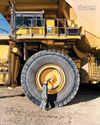
THE NEW GOLD RUSH
Gold prices have soared amid global uncertainty and a central-bank-driven buying spree. But this time, the gold mining industry looks very different.

A New Season for Giving
As the PGA TOUR kicks off its 2025 season alongside its sponsors in Hawai'i, the organization is continuing to make an impact in local communities.

WELCOME TO ELONTOWN, USA
The small town of Bastrop, Texas (pop. 12,000), has become a home base for Elon Musk's business empire. What comes next is anyone's guess.
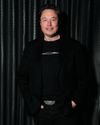
100 MOST POWERFUL PEOPLE
Our inaugural, authoritative ranking of the leaders whose innovation and impact have elevated them to the top of the business world.

ARE CEO SABBATICALS THE ULTIMATE POWER MOVE?
WHEN VENTURE capitalist Jeremy Liew and his wife were dating, they talked about how one day they would take a year to travel the world. \"That's how we'd know we'd made it,\" Liew says.
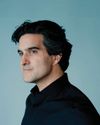
WHAT ARE THE BEST METRICS FOR MEASURING A STARTUP'S POTENTIAL?
IN HIS 2012 ESSAY \"Startup = Growth,\" Paul Graham talks about a 5% to 7% weekly growth rate as table stakes for startup success. If you're growing 10%, he says, you're doing \"exceptionally well.\"
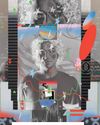
TECH POLYMARKET'S ELECTION ACCURACY MADE SHAYNE COPLAN A STAR-BUT AN FBI RAID POINTS TO TROUBLE AHEAD
IN NOVEMBER, Shayne Coplan had a week he'll remember for the rest of his life: He got a phone call from the highest echelons at Mar-a-Lago. He went on TV for the first time. And his New York City apartment was raided by the FBI.
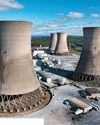
WHY BIG TECH IS THE NUCLEAR INDUSTRY'S NEW BEST FRIEND
OVER THE PAST several years, Big Tech firms like Google and Microsoft have trumpeted ambitious plans to go carbon-neutral, or even carbon-negative, by 2030. But then the generative-AI boom came along and threw a giant wrench in their plans.

WHAT PALMER LUCKEY, THE MAN REVOLUTIONIZING WARFARE, IS AFRAID OF
PALMER LUCKEY, the founder of the $14 billion Al-powered weapons startup Anduril, has become the face of change in the defense industry.
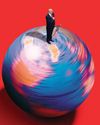
GLOBAL BUSINESS BRACES FOR TRUMP 2.0
AROUND THE WORLD in 2024, voters chose change: in South Africa, France, Britain, and Japan. But nowhere does the anti-incumbent trend matter more than in the United States.